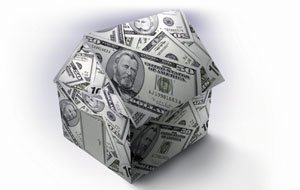The loss of a beloved tax deduction for South County homeowners is at stake, as Congress looks to make tough calls on how to decrease its federal deficit.
The mortgage interest tax deduction – one of the largest personal tax deductions in the nation – can be taken advantage of by homeowners with mortgages of up to $1 million.
In 2010, 37 million deductions were taken, with an average tax return of $2,500 per homeowner, according to the Joint Committee on Taxation.
Congress is considering cutting back on that tax break, which costs the federal government about $82.7 billion annually, as a means to bridge the $1.1 trillion budget deficit that Washington D.C. faces.
While some economists aren’t so sure that eliminating the tax break would hold dire consequences, real estate professionals bemoan the chance of a cutback, claiming that the cap or removal of such a tax break would destroy an already fragile housing market.
“This would greatly effect homeowners everywhere,” said Patty Filice, real estate agent at Intero Real Estate Services in Morgan Hill.
“It is a very common thing to sit down with a new homeowner to help them calculate what their after-tax-return dollar payment would be. It just makes a difference.”
Filice said in the 28 years she’s been in the real estate industry, she has seen this tax deduction threatened many times – so frequently, in fact, that she suspects Congress is crying wolf again.
But if it were to happen, Filice said the aftermath would be devastating.
“If you take that tax incentive away, you will see things grinding to a halt again,” she said. “And do we want to go back to where we were in 2009?”
Congress is considering several options to restructure the tax return that would be phased over the next 10 years.
Preliminary proposals range from elimination, to a gradual reduction to capping the deduction to mortgages less than $500,000, according to the Joint Committee on Taxation.
Gilroy accountant John Blaettler said that the proposal to cap the mortgage deductions to mortgages under $500,000 would impact South County to a greater extent than the rest of the country, because home prices are so much higher in this region than elsewhere.
The median home price in Gilroy and Morgan Hill is $425,000 and $585,000, respectively, according to the Gilroy Economic Development Corporation and the City of Morgan Hill. These figures more than double the $197,000 median price of a home in the nation.
“People think you must be rich if you buy a $500,000 home, but good luck if you’re thinking that’s a glamorous house around here. People in this area will be more penalized by eliminating the deduction because the cost of living is so much higher,” Blaettler said.
Blaettler said whatever happens, the proposals will need a lot of political massaging before Congress will ever reach an agreement.
“I don’t know if this will pass. I try not to get too serious when I read about a proposal until it gets further along. It would be years before this is implemented. It will be negotiated and sent back and forth from Congress to Senate,” he said.
Economics Professor Matthew Holian of San Jose State University believes that reducing or eliminating the deduction could actually have some positive impacts on the overall economy.
“I would say there are a lot of reasons for eliminating deductions and moving to a flatter tax code. Subsidizing homeowners leads to unintended consequences,” Holian said.
One of those consequences, Holian said, is an increase in unemployment – when people are given incentives to own their homes rather than rent, the adverse effect is they end up locked in that home and are unable to relocate for employment.
Holian did say that an elimination or decrease in the tax break would certainly make home ownership less attractive, thus driving down home prices in places such as Morgan Hill and Gilroy.
“People who currently own homes would lose from this when their home price drops. But then people who buy a home afterwards will stand to make the same expected return. They may not get the deduction, but their home price will be lower to start with,” Holian explained.
Congressman Mike Honda is skeptical of any decreases to the current mortgage deduction rate.
“Congressman Honda is aware that the people who tend to benefit from the home mortgage interest deduction are wealthy Americans, and there are ways to make the deduction more targeted and efficient.
However, the housing market is still in the midst of recuperating, and any sudden or drastic changes could only further endanger our economic recovery. Almost everything is on the table in these discussions, but the Congressman is skeptical that this is the time to tackle the home mortgage interest deduction,” his spokesman said in a written statement.
Congressman Jerry McNerney’s office did not respond to multiple phone calls and emails for comment.















